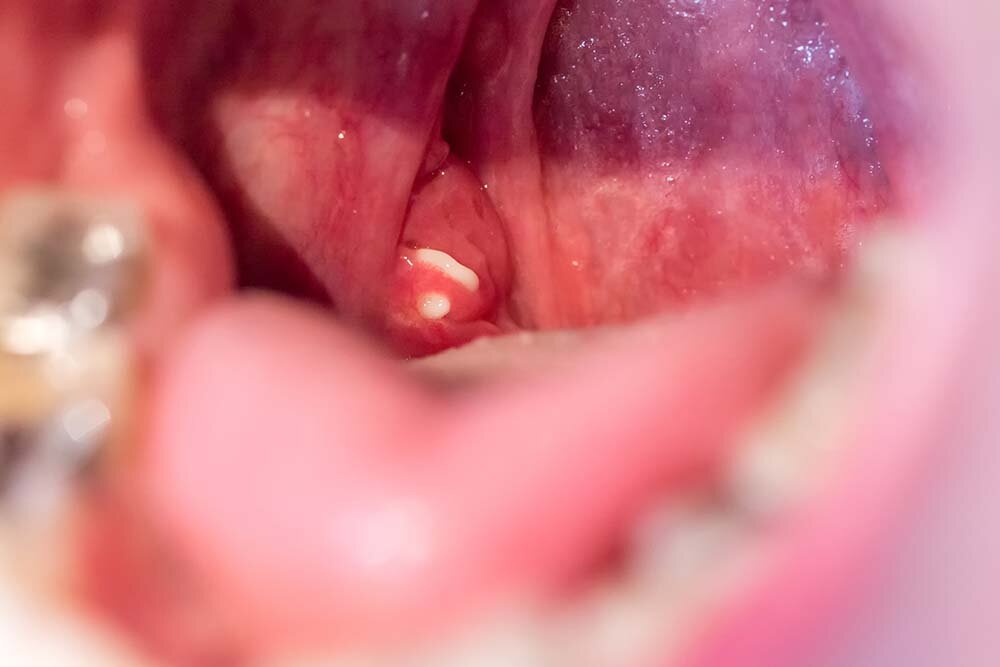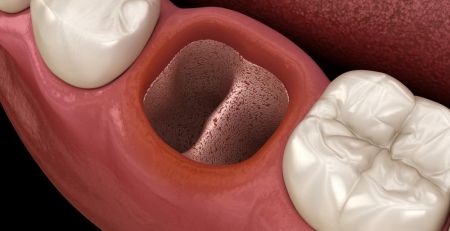Table of Contents
Tonsil stones, also known as tonsilloliths, are small, calcified deposits that form in the crevices of the tonsils. If left untreated, these stones can cause discomfort and bad breath, sometimes leading to more severe complications. Understanding the causes and available treatment options for tonsil stones is crucial for managing this condition effectively.
Causes of Tonsil Stones
Accumulation of Debris
Tonsils have crevices, known as crypts, which can trap food particles, bacteria, and dead cells. Over time, these trapped substances can harden and form tonsil stones.
Poor Oral Hygiene
Inadequate oral hygiene practices, such as infrequent brushing, lack of flossing, or neglecting to clean the tongue, can lead to bacterial overgrowth and the accumulation of debris in the mouth, contributing to the development of tonsil stones.
Chronic Tonsillitis
Individuals with a history of recurrent or chronic tonsillitis are more prone to developing tonsil stones. The frequent inflammation and infection of the tonsils can create an environment conducive to forming these calcified deposits.
Post-Nasal Drip
Excessive mucus production and post-nasal drip can increase the chances of tonsil stone formation. The excess mucus provides a breeding ground for bacteria, which can contribute to the development of these calcified deposits.
Dry Mouth
Insufficient saliva production can lead to dryness in the mouth, creating an environment conducive to tonsil stone formation.
Medical Conditions
Individuals with certain medical conditions, such as sinusitis, allergies, or gastroesophageal reflux disease (GERD), may have a higher risk of developing tonsil stones due to increased mucus production, chronic inflammation, or acid reflux affecting the throat.
Diet and Lifestyle Factors
A diet high in dairy products, sugary foods, and acidic beverages can accumulate debris and bacteria in the mouth, contributing to tonsil stone formation. Additionally, smoking and alcohol consumption may increase the risk.
How to Treat Tonsil Stones?

Good Oral Hygiene
Maintaining a regular oral hygiene routine, including brushing your teeth and tongue and using an antimicrobial mouthwash, can help reduce the accumulation of bacteria and debris in the mouth, thus minimising the risk of tonsil stone formation.
Gargling
Regular gargling with warm salt water or an antiseptic mouthwash can help dislodge tonsil stones and alleviate associated symptoms.
Manual Removal
For smaller tonsil stones that are visible and accessible, careful removal using a cotton swab or water pick may provide relief. It is essential to be gentle to avoid injury to the tonsils.
Laser Tonsil Cryptolysis
In more severe cases or recurrent tonsil stones, a minimally invasive laser can smooth the tonsil surface, reducing the likelihood of stone formation.
Tonsillectomy
In severe and persistent cases where tonsil stones significantly impact the quality of life, surgical removal of the tonsils (tonsillectomy) may be considered a last resort.
Prevention Tips
- You can maintain good oral hygiene by brushing your teeth twice daily and using mouthwash, dental floss, or an interdental cleaner to remove debris.
- Stay hydrated with water to promote saliva production and prevent dry mouth.
- Avoid or limit foods contributing to tonsil stone formation, such as dairy products and sugary or acidic foods.
- Regularly visit your dentist for check-ups and professional cleanings to detect and address any oral health issues promptly.
Summary
Tonsil stones can be uncomfortable and impact oral health and well-being. Recognising the causes and being aware of the available treatment options is essential for effectively managing this condition.
Suppose you experience persistent symptoms or have concerns about tonsil stones. In that case, it is recommended to consult a dentist, medical healthcare professional, or an ENT specialist who can provide an accurate diagnosis and recommend the most appropriate treatment for your situation.
By taking proactive steps and maintaining good oral hygiene practices, you can reduce the occurrence of tonsil stones and enjoy better oral health.
The information presented in this article is intended for educational purposes only and should not be used as a substitute for professional medical advice. It is essential to consult with a dental professional or healthcare provider for a personalised diagnosis and treatment options tailored to your specific needs and circumstances.




